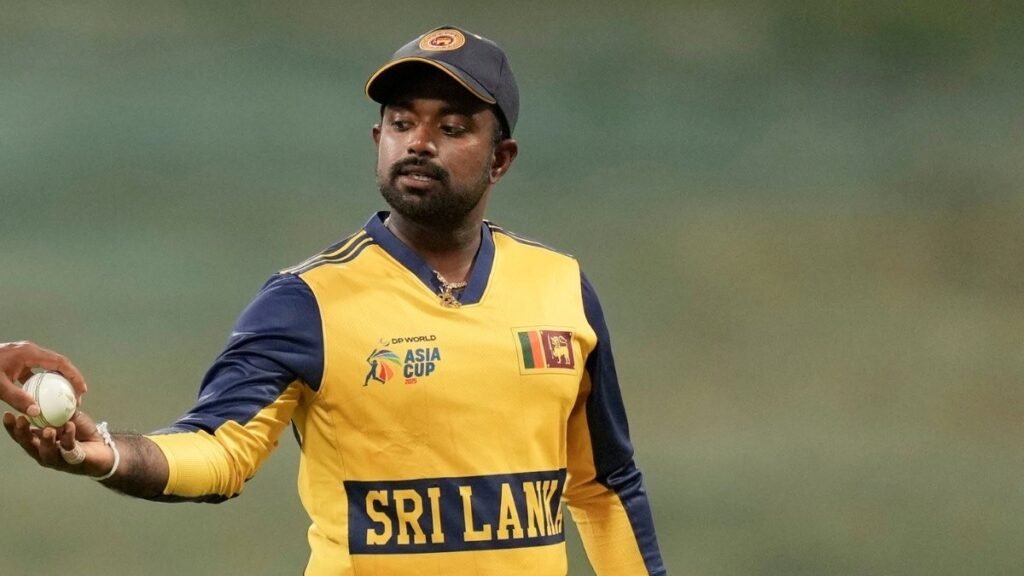Sri Lanka’s T20 skipper, Charith Asalanka, has been quietly withdrawn from the ongoing tri-series in Pakistan, a move that signals a major fallout following the recent ODI Series Pakistan. While Sri Lanka Cricket (SLC) officially attributed Asalanka’s return home to an illness, along with fast bowler Asitha Fernando, multiple reports suggest his removal stems from a heated stand-off over the continuation of the Pakistan tour.
The controversy emerged after a bomb blast in Islamabad, located 20 kilometres from the team hotel. Despite receiving assurances from Pakistani authorities regarding upgraded security, Asalanka, along with a small group of players, reportedly stood firm on the decision that the tour should be abandoned. Sources claim that Asalanka encouraged some teammates to consider withdrawing from the subsequent T20I tri-series due to heightened security concerns.
The decision to send Asalanka home was quickly made, and he was quietly flown back before the tri-series began. This action is seen as a clear message from the top brass: “no one is bigger than the game”. The reports indicate that SLC is weighing possible disciplinary action, and his omission was a direct decision by the board, not due to illness.
Shanaka Steps In as Leadership Scrutiny Intensifies
In Asalanka’s absence, Dasun Shanaka has been named captain for the remainder of the tri-series against Pakistan and Zimbabwe. Shanaka, an experienced all-rounder who has previously led Sri Lanka across formats, is expected to bring stability during this crucial phase. The decision to name Shanaka as T20 vice-captain earlier served as a “not-so-subtle hint that all was not well” with Asalanka’s leadership.
It is now expected that Shanaka will retain the captaincy for the upcoming T20 World Cup on home soil. The sources suggest that Asalanka, groomed meticulously for leadership since his days at Richmond College and as the Under-19 skipper, suddenly finds himself not fighting for the leadership, but fighting for his place in the starting XI.
The return to Shanaka, however, has also drawn criticism, with one source calling him a “stop-gap leader” that underscores the shallowness of Sri Lanka’s leadership pool.
A Dip in T20 Form Complicated Matters
The security standoff compounded existing pressures on the young captain. Asalanka had previously steered the ODI side with a calm assurance, leading them to bilateral series wins against Australia and India and helping the team climb to number four in world rankings. He was noted for his ice-cold finishing in chases.
However, T20 cricket proved less forgiving. His returns with the bat dipped alarmingly, and the team’s Asia Cup campaign unravelled without a single second-round win. Questions were raised about his tactical judgment, including entrusting the final over to Dunith Wellalage against Mohammad Nabi, a gamble that saw the youngster launched for five sixes (though Sri Lanka escaped that night). Other blunders included overlooking former captain Dasun Shanaka for a crucial over, instead handing the ball to Kamindu Mendis, who could not prevent Bangladesh from successfully chasing 169 runs.
For Charith Asalanka, described as a captain who previously maintained a spotless disciplinary record, the fallout marks a pivotal moment. According to analysts, one misjudged shot in cricket, as in life, can turn a match on its head, and this “might just be the toughest innings he has yet to rebuild”. The winless nature of the overall tour of Pakistan has already heaped pressure on the Sri Lankan side, with players being criticized for taking their “eye off the ball” by questioning security arrangements.
